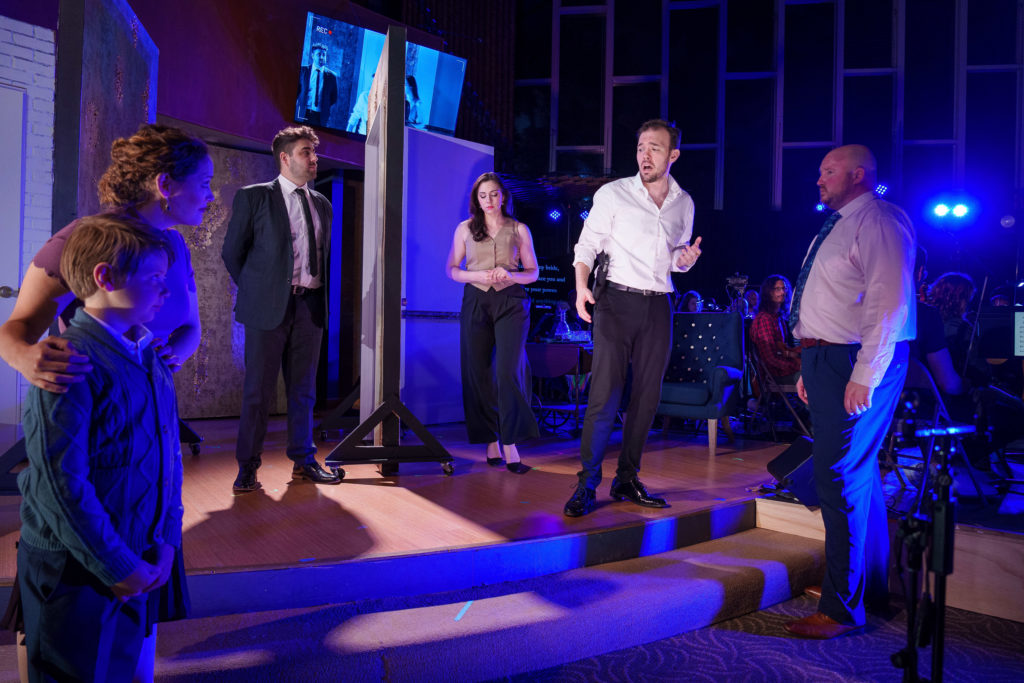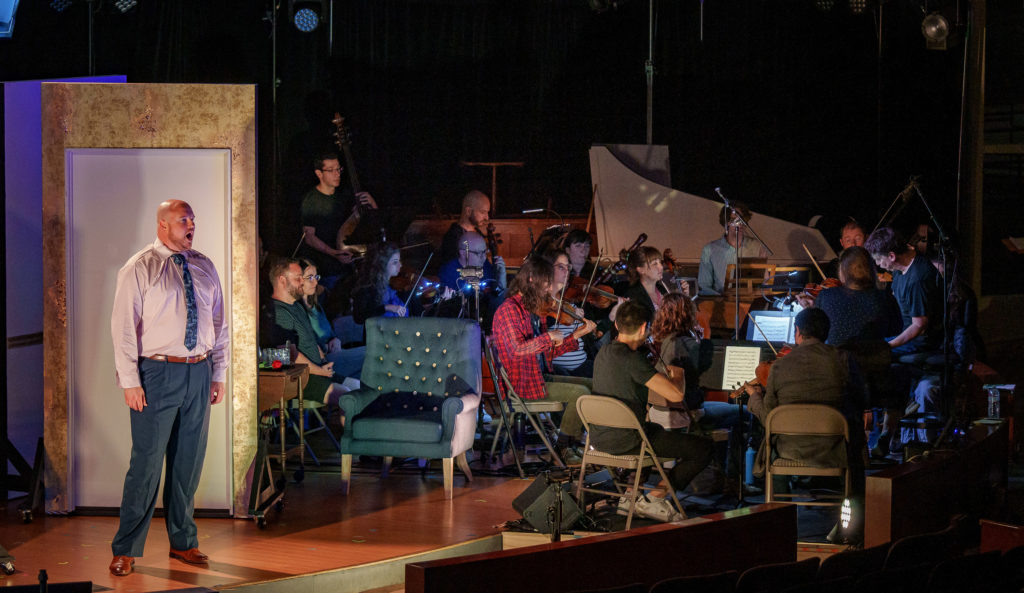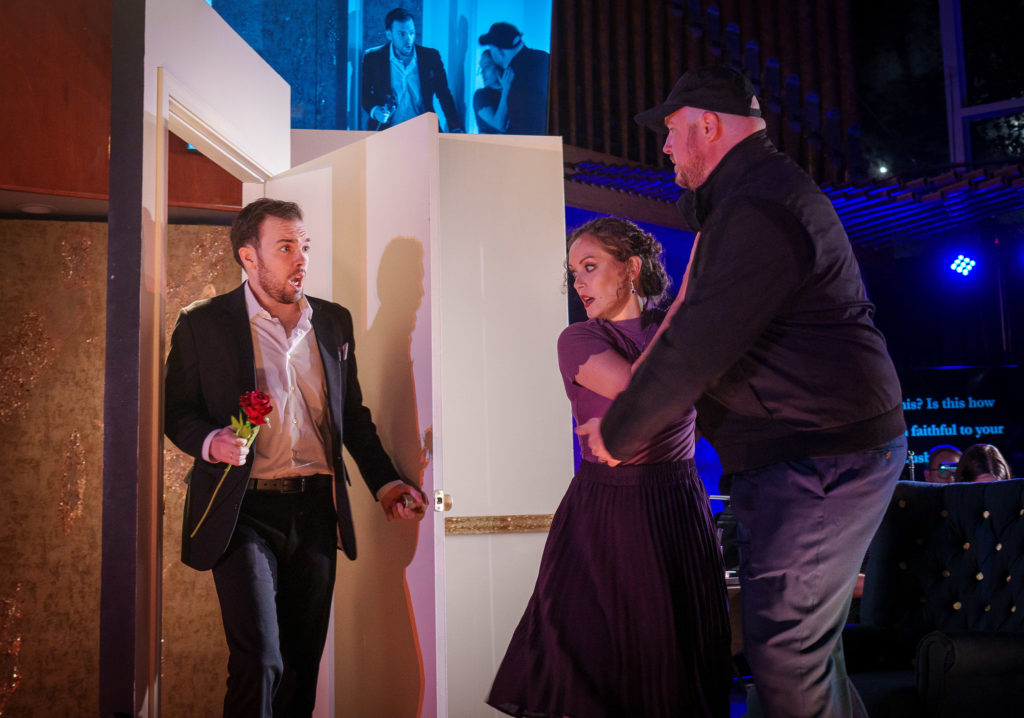Opera Neo Celebrates Another Handel Rarity: ‘Rodelinda’ at First Unitarian Universalist Church
Opera Neo opened its season Friday with a bold, imaginatively staged production of G. F. Handel’s early opera Rodelinda. Based on a shard of obscure Italian history, Bertarido, the overthrown 7th-century king of Lombardy, fakes his death in a plot to rescue his wife Rodelinda and young son from the dastardly usurper Grimoaldo. This rarely performed opera is nevertheless one of Handel’s richest troves of marvelous arias cloaked in vivid instrumental garb.
Considering the caliber of Handel’s writing and the taut drama of Rodelinda’s plot, is no coincidence that the 1920 production of Rodelinda in Göttingen, Germany, inaugurated the modern revival of staging Handel operas. In more recent times, this opera has been staged at The Met (2004), English National Opera (2014), and in Barcelona (2019) and Amsterdam (2020).Opera Neo Artistic Director Peter Kozma wisely brought back the stage director Sydney Roslin and three singers—soprano Emily Helenbrook, countertenor Keith Wehmeier, and tenor Charles Calotta—from last season’s highly successful production of Mozart’s Mitridate for this challenging Handel venture.
In the title role, soprano Emily Helenbrook combined vibrant dramatic presence with gleaming coloratura finesse in gripping arias such as “Morrai, si’, Spietati, io vi giurai” to win the audience’s complete support and admiration. To the villainous Grimoaldo, Calotta brought his tumultuous emotional range and bravura tenor command, especially in his aria “Tuo drudo è mio rivale,” an eruption of vengeful anger as frightening as it was brilliant.

(l. to r.) Eli Gómez-Bossu, Emily Helenbrook, Victor Bento, Bridgett Cappel, Charles Calotta & Keith Wehmeier [photo (c.) Gary Payne]

(l. to r.) Keith Wehmeier, Marc I. Olsher on bass, Korey Barrett at harpsichord, Peter Kozma conducting [photo (c.) Gary Payne]
The opera was presented by Opera Neo on Friday, May 17, 2024, at the First Unitarian Universalist Church of San Diego. It was repeated in the same venue on Saturday, May 18.

Ken Herman, a classically trained pianist and organist, has covered music for the San Diego Union, the Los Angeles Times’ San Diego Edition, and for sandiego.com. He has won numerous awards, including first place for Live Performance and Opera Reviews in the 2017, the 2018, and the 2019 Excellence in Journalism Awards competition held by the San Diego Press Club. A Chicago native, he came to San Diego to pursue a graduate degree and stayed.Read more…


It was an excellent production. One sign of success is that in a three hour production, the time flew by. I never squirmed in my seat and the audience was attentive if not spell-bound.